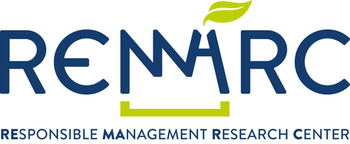Chiara Franco (Department of Political Science, University of Pisa) will give a seminar on sustainable consumption based on a paper co-authored with C. Ghisetti.
Abstract
“Sustainable consumption” is placed at the core of the current policy agenda, being recognized as one of
the key goal of the current Sustainable Development Goals. Recent research efforts have been conducted
aimed at understanding how to better stimulate pro-environmental choices in consumers, or more broadly,
in citizens, as consumers actions are found have a great potential in reducing environmental pressure (Dietz
et al. 2009). This research line provides evidence on what shapes people’s environmental attitudes. Focus
has been given mostly on the determinants of such type of behaviour (e.g. Torgler and Valinas, 2007;
Franzen and Vogl 2013), including the role social norms and imitation processes have in facilitating the
diffusion of pro-environmental behavior (Janssen and Jager, 2002, Welsch and Kühling, 2010, Schwarz and
Ernst, 2009) and the role of education (Bybee 2008, van den Bergh, 2008, Cotten and Gupta 2004;
Neuenschwander et al. 2012; Wen et al. 2011, Chankrajang and Muttarak, 2017).
Intensive research efforts have also been devoted at analysing the effects that environmental attitudes
may have on life satisfaction (e.g. Binder and Blankenberg, 2017; Schmitt et al. 2018; Welsh and Kuhling,
2010) and well-being (Verhofstadt et al. 2016). In this respect, it has been provided evidence also on the
mechanisms through which pro-environmental behaviours affects life satisfaction, showing that it does so
mostly due to self-image, meant as the own assessment of how environmentally-friendly one’s behavior is,
while it is not really affected by concrete pro-environmental behaviors such as conserving water, recycling
(Binder and Blankenberg, 2017).
Recently, it has been also acknowledged that knowledge and education play a crucial role in increasing
public concern about risks associated to unsustainable production and in motivating the adoption of (more)
sustainable consumption practices (van den Bergh, 2008). However, divergence exists between what
consumers declare to be willing to do for the environment (declared pro-environmental behavior) and the
actions taken in favour of the environment. This divergence is known as “value action gap”, and an
emerging field of literature has recently focused on its understanding.
Our paper aims at assessing what are the drivers and leverages of this gap in individuals when acting as
consumers in a market. Based on an empirical analysis on individual level data ( 3rd wave of the World Value
Survey data) representative for more than 50 countries in the world, it sheds new light on what drives it
and which regional heterogeneities emerge.
Keywords: Environmental Attitude; Environmental behaviour, Value action Gap
JEL: D10; Q50

